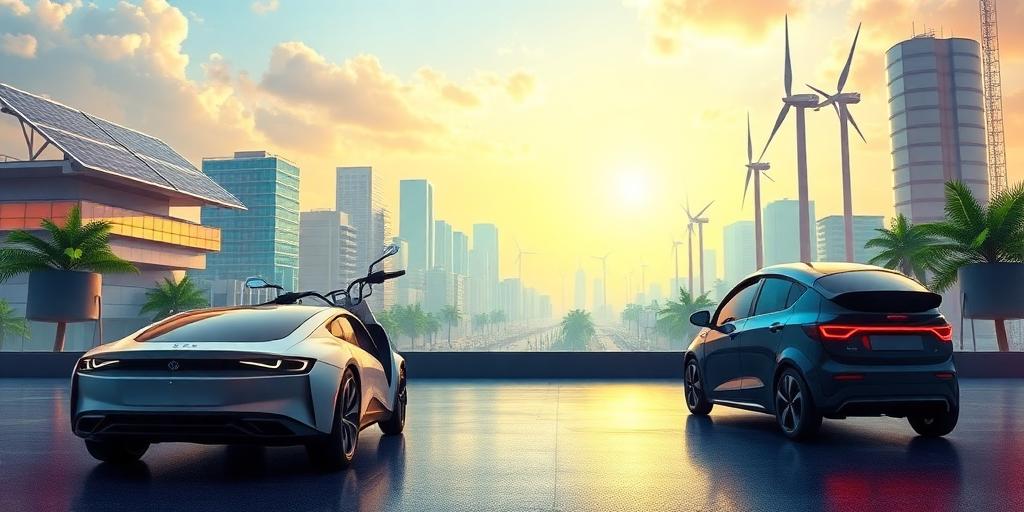The Burgeoning Indian EV Startup Ecosystem
India's electric vehicle (EV) market is experiencing a seismic shift, driven by a surge of innovative startups. These companies are not merely assembling EVs; they are developing cutting-edge technologies, forging strategic partnerships, and redefining the automotive landscape. This article explores the rise of EV startups in India, examining their impact, challenges, and future prospects.
Key Drivers Fueling Growth
Several factors contribute to the proliferation of EV startups in India:
- Government Incentives: The Indian government's push for electric mobility, through schemes like FAME (Faster Adoption and Manufacturing of Electric Vehicles), provides financial assistance and regulatory support.
- Investor Interest: Venture capital firms and private equity investors are increasingly allocating funds to EV startups, recognizing the sector's growth potential.
- Technological Advancements: Advancements in battery technology, motor efficiency, and charging infrastructure are making EVs more viable and attractive to consumers.
- Growing Consumer Awareness: Increasing awareness of environmental issues and the rising cost of fossil fuels are driving consumer demand for EVs.
Notable EV Startups in India
A number of EV startups are making waves in the Indian market. Here are a few prominent examples:
- Ather Energy: Known for its stylish and technologically advanced electric scooters, Ather Energy has established a strong brand presence and a growing charging infrastructure network.
- Ola Electric: Backed by ride-hailing giant Ola, Ola Electric aims to revolutionize the two-wheeler market with its competitively priced and feature-rich electric scooters. The company is also investing heavily in battery technology and manufacturing.
- Simple Energy: Simple Energy is another emerging player in the electric scooter segment, focusing on performance and range. Its flagship scooter boasts impressive specifications and a competitive price point.
- Okinawa Autotech: Okinawa Autotech has established itself as one of the leading electric two-wheeler manufacturers in India, offering a range of scooters catering to different needs and budgets.
- Euler Motors: Focusing on the commercial vehicle segment, Euler Motors is developing electric three-wheelers for cargo and passenger transportation, targeting the growing demand for last-mile delivery solutions.
Challenges and Opportunities
While the EV startup ecosystem in India is thriving, several challenges remain:
- Charging Infrastructure: The lack of widespread charging infrastructure is a major obstacle to EV adoption. Startups need to collaborate with government and private entities to expand the charging network.
- Battery Technology: Battery costs remain a significant portion of the overall EV price. Developing indigenous battery technology and reducing reliance on imports is crucial.
- Supply Chain Constraints: The EV industry relies on a complex supply chain, and disruptions can impact production and increase costs. Startups need to diversify their supply chains and build resilience.
- Skilled Workforce: The EV industry requires a skilled workforce, including engineers, technicians, and software developers. Investing in training and education programs is essential.
Despite these challenges, the opportunities for EV startups in India are immense. The country's large population, growing economy, and increasing urbanization provide a fertile ground for EV adoption. Startups that can address the challenges and capitalize on the opportunities are poised for success.
The Road Ahead
The rise of EV startups in India is a testament to the country's entrepreneurial spirit and its commitment to sustainable mobility. These companies are driving innovation, creating jobs, and contributing to a cleaner and greener future. As the EV market matures, we can expect to see further consolidation, strategic partnerships, and technological breakthroughs. The Indian EV revolution is underway, and startups are at the forefront of this transformative journey. The combination of innovative companies and supportive government policies will pave the way for a greener tomorrow.









